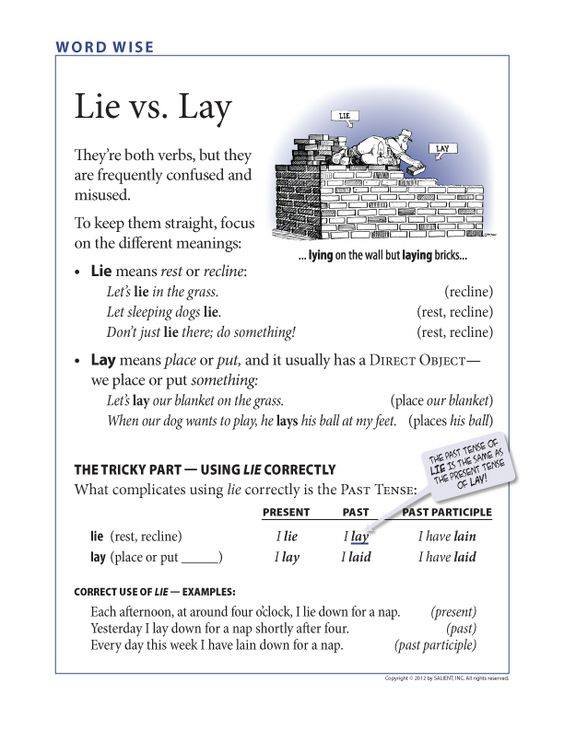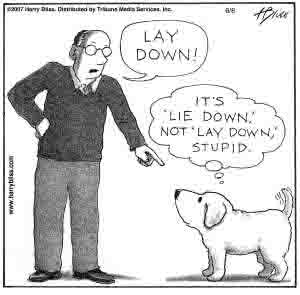Lay vs Lie
IMPORTANT NOTE: To help not confuse you, this lesson does NOT include the verbs “to lie” (= to not tell the truth,) and “to lay eggs” (= chicken produces eggs)
Question: Do you lay down or lie down for a nap?
Lay
= to place or put something or someone somewhere
(Lay is a transitive verb = It requires a direct subject and one or more objects)
present tense of lay = lay
past tense of lay = laid
perfect tense (=used with has, have, or had) of lay = have laid
Ex: I lay (place) a book on the table. (present tense)
Ex: You lay (place) a baby in the bed. (present tense)
Ex: Yesterday, you laid the baby in the bed (past tense)
Ex: He has laid my fears to rest (past perfect tense)
*Sometimes we use the phrase “get laid” to refer to have had sex.
Lie
= to recline, rest, or remain
(lie is a intransitive verb = doesn’t need an object)
present tense of lie = lie
past tense of lie = lay
perfect tense of lie = have lain
Ex: You lie (remain) in bed. (present tense)
Ex: The Andes mountains lie (rest) between Chile and Argentina. (present tense)
Ex: You lie (recline) down for a nap. (present tense)
Ex: Yesterday, you lay down for a nap (past tense)
Ex: The report has lain on his desk all week. (past perfect tense)
Popular phrase: Let sleeping dogs lie. It means to leave something alone if it causes trouble.


